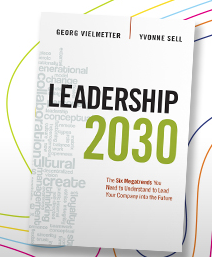“These children are so mature and they learn so fast, they might just be ready to take over by the time they’re 22.”
Generation X and the aging baby boomers often have trouble understanding and dealing with the millennials. But now, Alexandra Levit’s article in the New York Times calls attention to the rise of Generation Z. Take note, in case you forgot: Everyone grows up and everyone becomes older. Levit writes, “While executives have been fretting over the millennials, though, a new generation is growing up behind the scenes — Generation Z (born starting in the mid-90s to the early ’00s depending on whom you ask). Within the next three years, Gen Zers will be the college grads in my audiences, and they are poised to be somewhat different from the millennials.” Moreover, “These children are so mature and they learn so fast, they might just be ready to take over by the time they’re 22.”
Levit describes her own encounter with them and, more seriously, points out some of their attitudes, values and behavior regarding work, diversity, and activism on issues that concern them. They are the future, and the older generations would do well to pay attention to them — and maybe even learn something from them. She writes:
I recall the exact moment the temperature changed in the workplace. It was 2005, and I was speaking to an audience of 100 young professionals. I was relating my experiences building a career as a Gen Xer (born 1964-79) in a world of traditionalists (born before 1945) and baby boomers (born 1946-63).
Every time I threw out phrases like “paying your dues” and “playing the game,” the audience stared at me blankly. This was not the reaction I had come to expect from early twentysomethings. Usually they took notes on how they could get ahead in corporate America as quickly as possible. Continue reading


















































